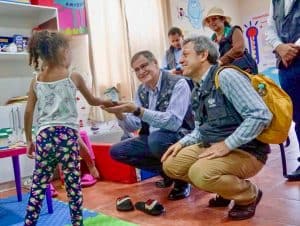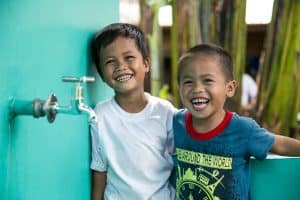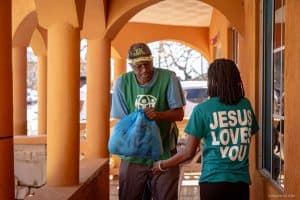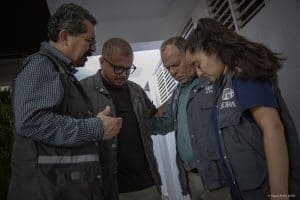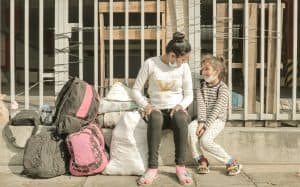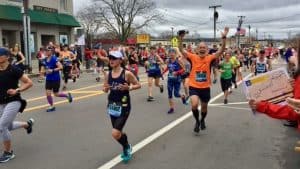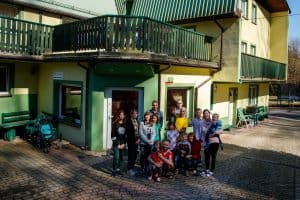When we share stories with you about the people and communities ADRA serves, it’s important to us that the unjust reality of life for our neighbors around the world is seen and never forgotten.
ADRA’s purpose is to serve humanity so all may live as God intended, and our hope is to share justice, compassion, and love with all we serve.
Right now, there is a growing hunger crisis threatening millions and millions of people’s lives around the world. Our team visited Kenya to learn from a woman named Anyuduk how hunger has impacted her family.
Anyuduk and her community are considered a forgotten people.
Remote and cut off from the rest of Kenya, public services don’t extend this far and government food distribution programs don’t reach their homes.
The ongoing need for food is a constant concern in this community, and it has brought great suffering for Anyuduk who lost her husband to hunger. The death of a grown man to starvation is shockingly common in this arid region, but it doesn’t make his loss any less devastating to the mother who is now raising five children alone.
Anyuduk was also left with the family’s herd of goats, but she quickly discovered that being a goatherd was nearly impossible. The goats needed her to take them on long treks to find grazing land while her children needed her at home to care for them.
The herd rapidly shrank as the dry, barren soil close to home was useless for growing grass, and Anyuduk gave the last of her goats to a neighbor before they could all die from hunger.
Conditions for the family are beyond dire.
With absolutely no food in the area, Anyuduk and her children eat just two things: a poisonous nut and a wild fruit they make into sweet tea.
Anyuduk described the careful process she must go through to make the dangerous nuts edible.
“We boil the nut twice, for three hours each time. Between the two boils, we pour off the water and rinse the nuts.”
Even though the nuts are edible, their bitter flavor lingers long after it’s been eaten.
When there aren’t any nuts to be gathered, Anyuduk sends her children to pick the wild fruit she uses to make tea.
“I make a tea for the kids from the fruit they collect,” she says. “They drink that instead of eating the nuts. The sugar gives us energy.”
Just like the nuts carry a poisonous risk, this tea can also lead to danger.
“Because it is so sweet, if the kids drink too much, it will make them thirsty. And if there is not enough water to drink, it can make the situation worse,” Anyuduk tells us.
For even the strongest person, resilience can be hard to find in a crisis like this.
How is ADRA helping?
Kenya is one of many countries where ADRA is helping to fight growing hunger.
We have ongoing and new food security projects that have been developed in collaboration with trusted partners and communities to prevent famine and build resilience. Examples of ADRA food security projects include:
- Drought-resistant farming practices
- Seeds, supplies, and other resources
- School lunch programs to feed children and keep them in school
- Household and community gardens
- Female farmer and cooperative group investment
- Maternal and early childhood nutrition education
- Farmer field schools to improve methods and marketing
